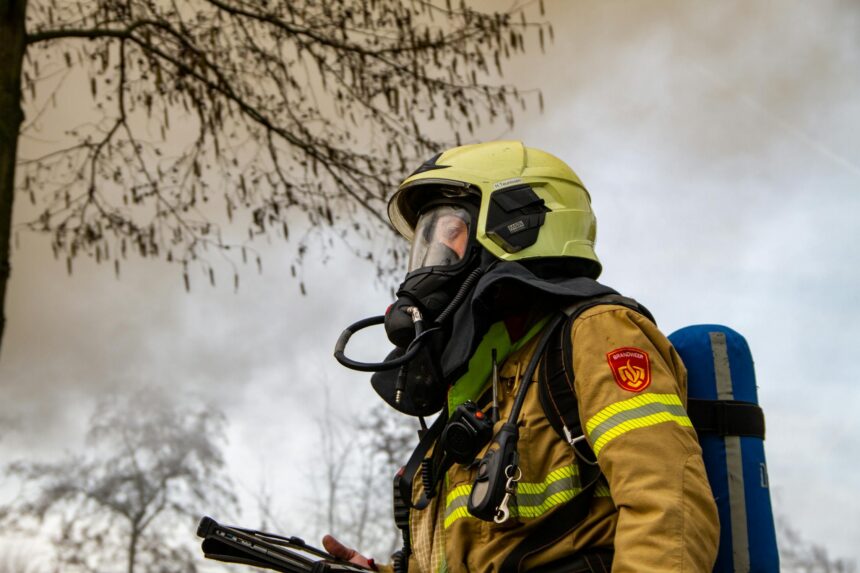Firefighters risk their lives to extinguish fires and protect people, property, and the environment. Their job makes them susceptible to not only burns, crush injuries from collapsing structures, and heat exhaustion but also to long-term job-related illnesses like cancer.
Incidences of esophageal cancer, prostate cancer, and leukemia are high among firefighters. Firefighters are also more likely to die from certain types of cancers than the general population, discloses a new study. Exposure to toxic chemicals while battling blazes increases their risk of cancer death.
However, as a firefighter, there are several ways you can reduce your cancer risk significantly and safeguard your health. In this article, we’ll share a few of them.
Wear Personal Protective Equipment During all Phases of Firefighting
Firefighters are exposed to a host of toxins during firefighting operations. Many of those are carcinogens. Dermal contact, inhalation, or ingestion of the toxic compounds present in the smoke generated during fires can increase the risk of developing cancer.
Prioritize wearing personal protective equipment (PPE) throughout every stage of firefighting operations to minimize your exposure to carcinogens. Wear turnout gear, self-contained breathing apparatus (SCBA), gloves, and helmets at all times when fighting a fire.
Turnout gear will not only protect you from heat stress and burn injuries, but it will also serve as a barrier against contaminants. SCBA will offer a constant flow of breathable air, minimizing your exposure to hazardous gasses and your risk of asphyxiation.
Be sure to wear your PPE during investigations. Harmful off-gassing continues for some time. If you don’t wear PPE during overhaul and cleanup operations, you will be exposed to them and increase your risk of cancer.
Decontaminate Yourself and Your PPE
After extinguishing a fire, decontaminate yourself and your PPE. Soot and hazardous residue accumulate on clothing and exposed body parts. Getting rid of them is important, or your body might absorb them and increase your risk of cancer.
Start with the decontamination process right after you exit the fire ground. Using soap and water will help you decontaminate your PPE. You can use a brush, though, to remove contaminants from it. Then, put the PPE in a plastic bag, seal it properly, and place it in a large storage tote to keep the off-gassing away from yourself and other firefighters.
Don’t forget to decontaminate your exposed body parts. Consider using specialized wipes and decontamination solutions to wipe off harmful substances from your body. You might be tempted to skip decontaminating your body, but don’t. We say so because firefighters are exposed to aqueous film-forming foam (AFFF) during firefighting operations.
This firefighting foam, though effective in suppressing flammable liquid fires, contains per- and polyfluoroalkyl substances. Studies have found PFAS, or per- and polyfluoroalkyl substances, to be carcinogenic.
A study published in the Journal of Occupational and Environmental Medicine discloses that firefighters have been shown to have higher serum concentrations of some PFAS after training sessions. The same study reveals that increased serum PFAS concentrations are linked with an elevated risk for kidney cancer in humans.
Another study discovered an association between AFFF exposure and testicular cancer in firefighters.
Thousands of lawsuits have been filed against the manufacturers of AFFF by firefighters who developed cancer after being exposed to them. Plaintiffs in the AFFF foam lawsuit allege that the manufacturers knew the chemicals in the AFFF would accumulate in their bodies and increase the risk of certain cancers. Yet they failed to warn them.
Firefighters have sued over a dozen companies that supplied AFFF to military bases, fire departments, airports, and other places. Some of them, TorHoerman Law informs, are DuPont, 3M, Tyco Fire Products, Chemours, and Chemguard Inc.
Thus, if you don’t decontaminate the exposed parts of your body right after exiting the fire ground, there’s a high possibility that PFAS will get absorbed in your skin. This will increase your risk of developing cancer.
Limit Your Exposure to the Diesel Exhaust From Fire Apparatus
A diesel firetruck or fire apparatus produces exhaust whenever it leaves or enters the apparatus bay. Exposure to diesel exhaust can increase your risk of several health issues, including lung cancer.
Keep the bay doors open before the engine starts to leave and turns off after it returns. This will reduce your diesel exhaust exposure. Installing a diesel exhaust capturing system will also limit your exposure to the exhaust.
To sum things up, firefighters can reduce their risk of developing cancer by following the tips mentioned above. Additionally, maintaining a healthy lifestyle and quitting smoking can better protect their health and overall well-being. Don’t forget to get your health screened regularly. Frequent health screenings can help detect cancer, allowing for early intervention.
Also Read: Discovering Home: Life on the 2800 Block of Southeast Colt Drive







